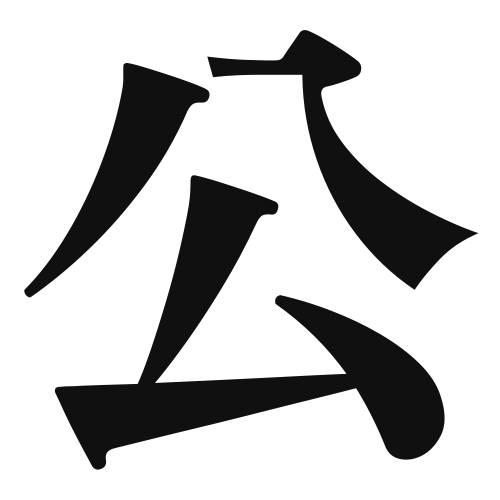1. Overview of Meaning
The kanji “公” (pronounced “kou” or “o”) primarily means “public” or “official.” It represents concepts related to the community, society, and things that are not private or personal.
2. Origin and Radical
The kanji “公” is a compound character that combines elements to convey its meaning. It is derived from the pictographic representation of a person standing in front of a large area, symbolizing a public space or gathering. The radical for “公” is 八 (hachi), which can imply division or separation, indicating the idea of something that is shared among many.
3. Examples of Usage
Common words and phrases that include “公” are:
- 公共 (koukyou) – public
- 公園 (kouen) – park
- 公務員 (koumuin) – public servant
Example sentences in daily conversation:
- この公園は子供たちに人気です。
(This park is popular among children.) - 彼は公務員として働いています。
(He works as a public servant.)
4. Synonyms and Antonyms
Similar kanji with related meanings include:
- 私 (watashi) – private, personal (indicating the opposite of public)
- 共 (tomu) – together, shared (emphasizing community aspects)
Antonyms include:
- 私 (watashi) – private, personal
5. Cultural and Historical Background
The concept of “公” is deeply rooted in Japanese culture, reflecting the importance of community and public welfare. It is often used in proverbs and idiomatic expressions, such as:
- 公私混同 (koushi kondou) – mixing public and private matters, which is generally viewed negatively.
This highlights the cultural value placed on maintaining a clear distinction between personal interests and public responsibilities.
